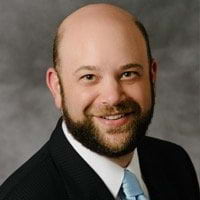Speedy Foreclosures In Florida
Once again, the Florida Legislatures has before it a proposal that would speed up the state’s lengthy court foreclosure process. On Thursday, January 3, 2013, Rep. Kathleen Passidomo, R-Naples, introduced HB 87, an act relating to mortgage foreclosures.
Last year, the Florida House of Representatives passed the “Florida Fair Foreclosure Act,” as House Bill 213. The introduction of that bill created wide-spread myths and falsehoods about the proposed law and its impact on foreclosures in Florida. The main purpose of the 2012 bill was to accelerate the bank’s ability to foreclose -most foreclosures in Florida trudge along over one or two years, some even longer. Although the bill passed in the House of Representatives, it was never addressed by the Florida Senate; thus the bill never matured into law. The purpose of this article is to proactively dispel any myths related to the 2013 bill, and compare and contrast it with last year’s bill.
The 2013 bill has some interesting provisions. It reduces the statute of limitations to pursue deficiency on foreclosure sales and deeds in lieu of foreclosure to one year, from five years. The bill makes no mention of statute of limitations on short sales; presumably therefore, the relevant statute of limitations for deficiency remains five years from a short sale. In layman’s terms, this means that the bank can sue to recover deficiency within one year from a foreclosure sale or deed in lieu, and five years from the short sale.
The bill also requires banks to more accurately state in their foreclosure lawsuit: (1) who “holds” the original promissory note; (2) the specific chain of assignments of the note and mortgage from the originating lender to the plaintiff; (3) the authority of the plaintiff to bring the foreclosure action and the document that gives the plaintiff such authority; and (4) certification of possession of the original note. These changes to the foreclosure lawsuit are designed to combat the challenges created by mass and sometimes undocumented transfers of notes and mortgages between lenders. If the plaintiff fails to comply, it can be sanctioned by the Court.
Foreclosures in Florida
If the property is sold at foreclosure sale to a person unaffiliated with the foreclosing lender or foreclosed owner, the foreclosed borrower may not bring a motion to overturn or reverse the foreclosure sale, and can only bring a motion for damages against the lender.
Probably the most controversial proposition in last year’s bill was the ability of the lenders to utilize a statutory procedure to remove the foreclosure from the judge’s discretion and thereby drastically reduce the time necessary to foreclose a Florida homeowner. The 2013 bill fails to incorporate many of the statutory provisions included in last year’s bill, leaving the discretion to foreclose up to the State Court Judges, rather than statutory constructs. Ironically, Florida has current statutes that allow a quick foreclosure, Chapter 702 – Foreclosure of Mortgages and Statutory Liens. However, few foreclosing lenders utilize this statute.
In a nod to the frustrations experienced by homeowner and condominium associations who find themselves impatiently waiting for a lender to finish the foreclosure action, this year’s bill expands the definition of “Lienholder” to include homeowner and condominium associations, thus giving them the authority to speed up the foreclosure under Florida’s current Chapter 702.This raises concerns, however, as to how an association can “speed up” a bank’s foreclosure action if the bank fails to submit to the Court the documents and evidence necessary to establish the bank’s right to foreclose. Might the Court dismiss cases expedited by “Lienholders” thus increasing, rather than decreasing, the foreclosure timeline?
Within last year’s bill, the proposed tradeoff to a speedy, statutory foreclosure was an automatic waiver of liability to the lender. Similarly, this year’sbill provides that a judgment under Florida Statute 702 applies only to the house; a judgment under Florida Statute 702 creates no deficiency. However, the bank may also pursue a separate lawsuit for damages (i.e. deficiency) simultaneously with the lawsuit for foreclosure.
Currently, Florida law allows a lender to require the borrower/homeowner to make monthly payments to the lender while the foreclosure action is pending – again a very seldom-used provision of the law. The proposed bill would amend and remove this possible requirement as it relates only to owner-occupied properties.Thus, owners of investment or rental properties could still be required to pay monthly payments to the foreclosing lender while the lawsuit is progressing whether or not the 2013 bill becomes law.
If approved by the House, approved by the Senate, and signed into law by Governor Scott, the law would apply to all existing and future notes and mortgages in Florida. The law would take effect immediately upon becoming law, although the provisions relating to the statute of limitations would apply to foreclosure cases initiated on or after July 1, 2013.
Whether the Bill is good or bad for Florida homeowners is yet to be seen, as it will likely be changed and modified as the Bill winds its way through the Florida House of Representative and Senate. However, this is the third year in a row that the Florida Legislature has introduced law designed to speed up foreclosures in the State of Florida. We will keep you posted as new developments arise. In the meantime, we provide free consultations regarding mortgage foreclosure and other related areas of law for homeowners in Tampa Bay and throughout the State of Florida.




